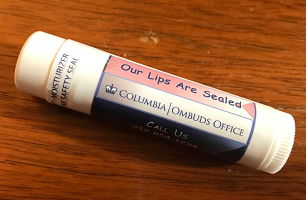By Charles L. Howard, Executive Director of IOA 
As I near the end of my first month as the new Executive Director of IOA, I want to give everyone a brief update of what I have been up to. Even before I officially started, I met with Marcia Martinez-Helfman and Lee Twyman in Philadelphia to get a lay of the land and make sure that we were aligned on what our goals are for this new position. Since the first of September, I have been primarily engaged in a learning and listening tour—having orientations with leadership and SBI on finances and operations and participating in the monthly meetings of various committees and task forces. I have also had my first Executive Committee and Board meetings. Along the way, I have helped respond to external inquiries and have been engaged in planning for my role as the keynote speaker in the Washington, D.C. Ombuds Day event and a subsequent Ombuds Day event at Quinnipiac Law School here in Connecticut on October 15th. I have been making plans for presentations later in October to university risk managers and to participate with Jessica Kutcha Miller in attending the public hearing and having a poster presentation at the Action Collaborative sponsored by the National Academies of Sciences, Engineering and Medicine. I am still excited to be a part of IOA and look forward to finding ways to be useful in expanding the reach of this important profession.







 Ombuds are expected to act as agents of positive change for organizations. This is arguably one of the most important long-term contributions of the role. SoP 4.6 states that “The Ombudsman identifies trends and concerns about policies and procedures, including future issues and concerns… and provides recommendations for responsibly addressing them.”
Ombuds are expected to act as agents of positive change for organizations. This is arguably one of the most important long-term contributions of the role. SoP 4.6 states that “The Ombudsman identifies trends and concerns about policies and procedures, including future issues and concerns… and provides recommendations for responsibly addressing them.”
